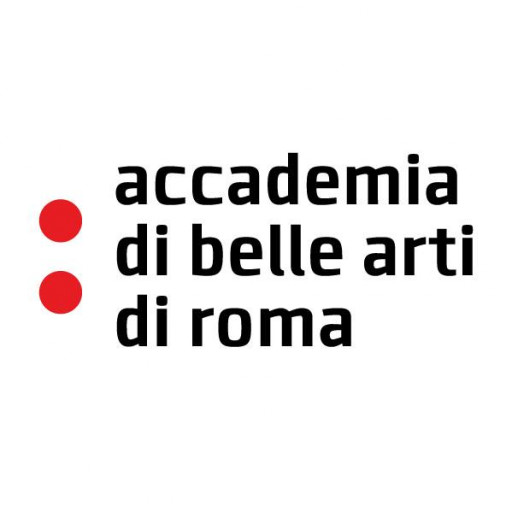Photos of university / #unicanberra
The Bachelor of Heritage Materials Conservation at the University of Canberra is a comprehensive undergraduate program designed to prepare students for a rewarding career in the preservation and conservation of cultural heritage materials. This program offers an in-depth understanding of the scientific, technical, and cultural aspects involved in conserving historical artefacts, architecture, and objects of cultural significance. Throughout the course, students will explore various conservation techniques, including materials analysis, preservation methods, and ethical considerations in heritage management. The curriculum combines theoretical knowledge with practical skills, enabling graduates to assess the condition of heritage materials, develop treatment plans, and implement conservation strategies that ensure the longevity of valuable cultural assets. Students will gain hands-on experience through laboratory work, internships, and real-world projects, working alongside professionals in the field. The program also emphasizes the importance of research, interdisciplinary collaboration, and sustainable practices in heritage conservation. Graduates of this program will be equipped to work in museums, galleries, heritage sites, and conservation laboratories, contributing to the preservation of cultural history for future generations. With a focus on innovation and respect for cultural diversity, the Bachelor of Heritage Materials Conservation at the University of Canberra provides students with the skills and knowledge needed to make meaningful contributions to the conservation and management of heritage materials worldwide.
The Heritage Materials Conservation program at the University of Canberra offers a comprehensive and interdisciplinary education designed to prepare students for a dynamic career in the preservation and restoration of cultural heritage. This program equips future conservators with advanced knowledge of the materials, techniques, and scientific principles involved in conserving a wide range of cultural artifacts, including paintings, sculptures, textiles, archaeological objects, and architectural elements. Students will explore the history and theory of conservation practices, gaining a deep understanding of ethical considerations and professional standards that underpin the field.
The curriculum combines theoretical coursework with practical hands-on experience to ensure graduates are well-versed in the latest conservation methodologies. Core subjects include the principles of materials science, chemistry, and microbiology as they relate to heritage preservation. Students learn about the identification, analysis, and treatment of diverse materials, enabling them to develop tailored conservation strategies. The program also emphasizes documentation, research skills, and condition assessment techniques necessary for effective preservation planning.
Through laboratory work and supervised internships, students have opportunities to work with real heritage collections and collaborate with museums, galleries, and conservation laboratories. This practical experience is complemented by lectures and seminars led by experienced professionals in the field, providing insights into contemporary debates, digital documentation, and emerging technologies in conservation. The program also covers important topics such as sustainable practices, environmental controls, and legal and ethical issues associated with heritage management.
Graduates of the Heritage Materials Conservation program will be equipped to work in a variety of settings, including cultural institutions, government agencies, private conservation studios, and research organizations. They will possess the skills to carry out conservation projects that extend the life of cultural assets while respecting their historical significance and integrity. This program fosters a collaborative and innovative learning environment, preparing students to contribute meaningfully to the field of heritage conservation both locally and globally.
The Bachelor of Heritage Materials Conservation program at the University of Canberra is designed to provide students with comprehensive knowledge and practical skills necessary for the preservation and care of heritage materials. The program encompasses a multidisciplinary approach, integrating principles from conservation science, heritage studies, materials science, and cultural heritage management. Students will engage in both theoretical coursework and hands-on training to develop competencies in assessing the condition of heritage objects, understanding material properties, and applying appropriate conservation techniques. Core modules include Introduction to Heritage Conservation, Materials and Methods in Conservation, Heritage Law and Ethics, Cultural Heritage Management, and Scientific Techniques in Heritage Analysis. Practical components involve laboratory work, field internships, and project work, enabling students to gain real-world experience. Throughout the program, emphasis is placed on ethical practices, sustainable conservation, and the importance of multidisciplinary collaboration in heritage preservation. Graduates of this program can pursue careers in museums, archives, conservation laboratories, heritage consultancy, and cultural institutions, where they will be responsible for the preservation of historical artifacts, artworks, and architectural elements. The program aims to foster critical thinking and problem-solving skills, preparing students to address complex conservation challenges while respecting cultural significance and sustainability. Upon completion, students will be equipped with a solid foundation to contribute effectively to the conservation of cultural heritage materials, supporting the longevity and accessibility of historical collections for future generations.
The University of Canberra offers a range of financing options to support students enrolled in the Heritage Materials Conservation program. Tuition fees may vary depending on whether students are domestic or international, with domestic students benefiting from government subsidies and assistance programs, while international students are responsible for paying full tuition fees. The university provides detailed fee structures on its official website, including information on standard yearly tuition costs, and specifies additional charges such as student services and amenities fees, materials fees, and potential laboratory or fieldwork charges.
For domestic students, the Australian government offers several financial aid options, including HECS-HELP and FEE-HELP schemes, which allow students to defer payment of their tuition fees until they reach a certain income threshold after graduation. These schemes significantly reduce the upfront financial burden and make higher education more accessible. The university also offers scholarships based on academic merit, financial need, or specific criteria related to heritage conservation, which can cover partial or full tuition fees, as well as living expenses. Additionally, students can explore external scholarships from cultural heritage organizations, government agencies, or private foundations dedicated to supporting conservation studies.
Students are encouraged to seek part-time employment opportunities both within the university and off-campus to supplement their income during their studies. The university's career services and student support offices assist with job placement and internships in heritage conservation fields, which can provide valuable practical experience alongside financial support. Student loans and payment plans are also available, allowing students to manage their tuition costs through installment options.
International students might be eligible for scholarships, grants, or sponsorships specific to their country of origin or the university’s exchange programs. They should also consider the costs associated with visas, health insurance, and living expenses, which are separate from tuition fees but essential for financial planning.
Furthermore, the university frequently reviews its financial aid policies and updates its scholarship opportunities each academic year to ensure support for diverse student needs. It is recommended that students interested in studying Heritage Materials Conservation contact the university’s admissions or financial aid offices early to obtain current information and personalized advice regarding available funding options. Overall, the University of Canberra is committed to providing affordable access to heritage conservation education by offering comprehensive financial support mechanisms tailored to the needs of its diverse student body.
The Heritage Materials Conservation program at the University of Canberra is a specialized course designed to equip students with the knowledge and skills necessary to preserve and conserve historical artifacts, artworks, and cultural heritage materials. This program focuses on the scientific and technical aspects of heritage conservation, emphasizing the importance of understanding material properties, conservation techniques, and ethical considerations in the preservation of cultural heritage. Students enrolled in this program will gain comprehensive training in the identification, assessment, and treatment of various heritage materials, including ceramics, metals, textiles, paper, and organic materials.
The curriculum integrates theoretical knowledge with practical applications, allowing students to develop hands-on experience through laboratory work, fieldwork, and projects. This approach ensures graduates are prepared to work effectively in museums, galleries, heritage sites, and conservation laboratories. The program also covers topics such as environmental factors affecting heritage materials, preservation of archaeological finds, and the development of conservation strategies that balance technical intervention with minimal intervention principles.
Students will learn about the history and significance of cultural heritage, ethical responsibilities in conservation, and the importance of sustainable practices. Collaboration with professionals in the heritage sector and exposure to current conservation technologies and methodologies are integral parts of the program. The University of Canberra's Heritage Materials Conservation program aims to produce industry-ready professionals capable of contributing to the preservation of cultural heritage for future generations. Graduates may pursue careers in conservation consultancy, heritage management, research, and restoration of cultural artifacts.
The program duration is typically two years for full-time study, with options for part-time enrollment. It is designed to meet industry standards and is often supplemented by opportunities for internships and industry placements. The faculty comprises experienced conservation professionals and researchers dedicated to supporting students' academic and professional development. Post-graduation, individuals will be well-equipped to address the challenges of heritage conservation with a grounded understanding of both scientific and cultural issues involved. Overall, the Heritage Materials Conservation program at the University of Canberra offers a comprehensive educational pathway for those passionate about preserving cultural heritage through scientific excellence and ethical practice.







